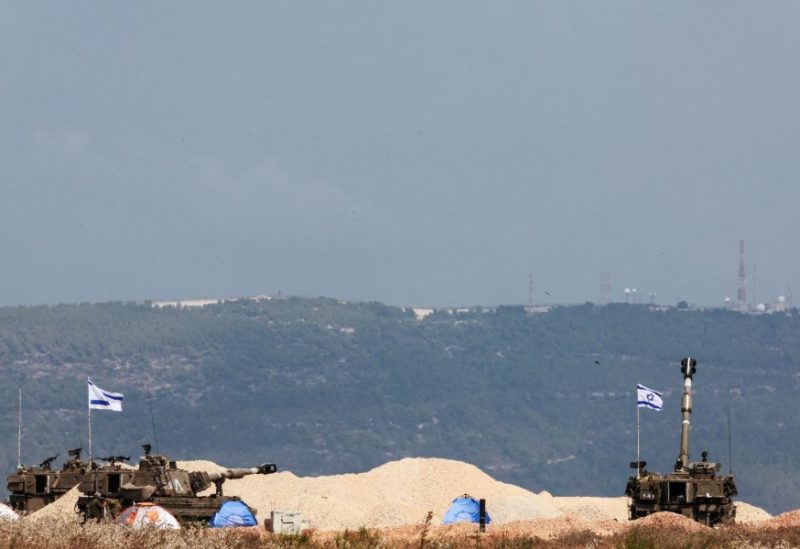
Israeli tanks are positioned near Israel's border with Lebanon, in northern Israel, October 10, 2023. REUTERS
Many residents of south Lebanon who just days ago were preparing to harvest their olives have instead fled for fear of another ruinous conflict with Israel after the deadliest day of cross-border violence since the 2006 war.
For villagers in southern Lebanon, Monday’s clashes stirred memories of the devastating 2006 war between Israel and the Iran-backed Lebanese group Hezbollah as the conflict between Israel and Palestinian militants, 200 km (120 miles) away to the south, arrived at their doorstep.
On the Israeli side of the frontier, villages appeared deserted on Tuesday – a possible result of residents sheltering indoors rather than evacuating. The Israeli military said it had not issued them with any orders to leave. Some people, however, said they were relocating southward as a temporary precaution.
Israeli tanks were deployed in the far northern border town of Metulla as rain came down near the heavily fortified border.
Six people were killed on Monday – three Hezbollah members, an Israeli officer, and two Palestinian militants who touched off the violence by infiltrating Israel from Lebanon.
“I was here in 2006 – those were terrifying scenes. And the shelling yesterday was very heavy,” Charbel Alam, a barber in the border town of Rmeish, said. Hundreds of people had left, mostly families with children or elderly relatives, he said.
“People with kids left because in 2006, there was no bread, no milk, no medicine. Lebanon is already like that now, so imagine what it would be like if things escalate,” Alam said, referring to the financial crisis that has impoverished many Lebanese over the last four years.
Nazimiya Damouch, an elderly woman, said children had been taken to shelter in a nearby U.N. peacekeeper base during Monday’s shelling. “I’m not afraid of shelling like this, but you get scared for the kids.”
It marked the most serious escalation at the volatile frontier in rugged highlands since the summer war 17 year ago that killed 1,200 people in Lebanon, mostly civilians, and 157 Israelis, mostly soldiers.
Tensions have spiked since Palestinian Islamist group Hamas launched a surprise attack on Israel from the Gaza Strip on Saturday, killing 900 people, abducting dozens, and setting off a war in which nearly 700 Palestinians have also been killed.
Monday’s violence at the Lebanese-Israeli frontier began when militants from the Palestinian Islamic Jihad group, which is fighting alongside Hamas in Gaza, slipped across the frontier from Lebanon into Israel.
Israeli forces killed two of the militants in the ensuing confrontation, in which the Israeli officer also died, though Islamic Jihad said the Israeli death toll was higher than that published by Israel so far.
The Hezbollah fighters were then killed during retaliatory Israeli shelling. Hezbollah responded by firing on two Israeli army positions, with no casualties reported. Hezbollah called it an initial response, signalling more to come.
Streets were quiet in Lebanese villages and towns near the frontier on Tuesday, with schools shut. A storm put many people in Lebanon on edge as thunder was mistaken for Israeli bombardment.
People were also jittery in Kiryat Shmona, a northern Israeli town near Metulla. “This is not the best feeling in the world,” resident Orel Sigon said. “We’ve experienced rockets here, we’ve been through a lot, but this time we feel that there will be chaos.”